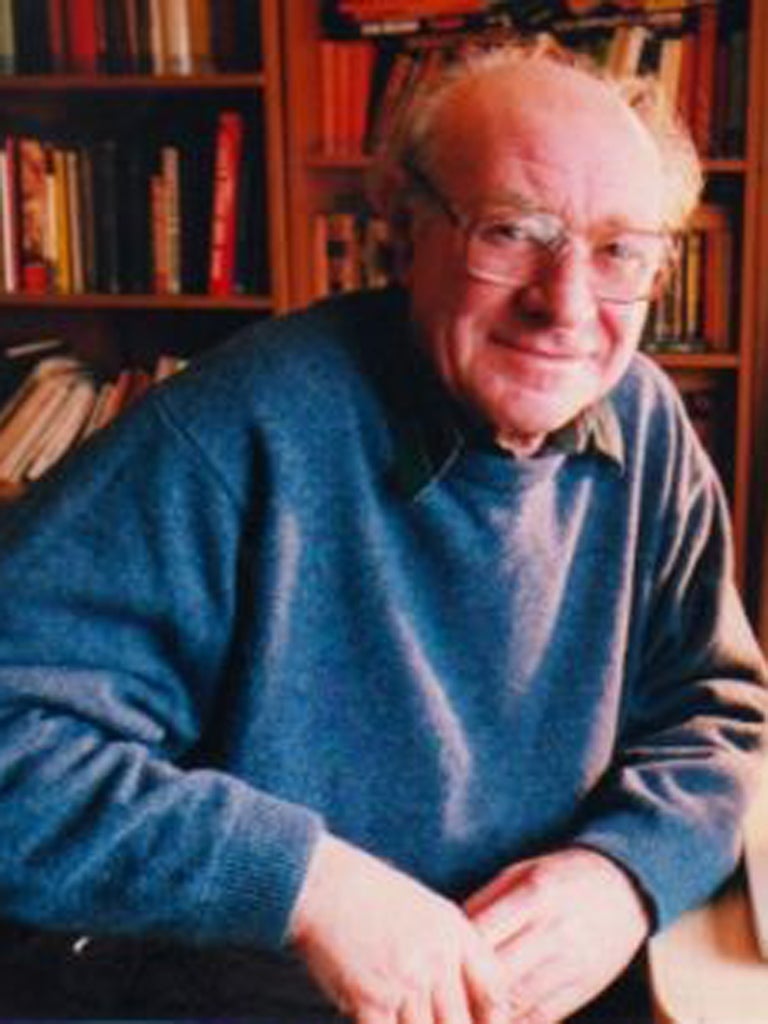Eric Taplin: Pioneering historian of dock labour

No social historian of 19th-century Britain and no expert of labour history in port cities will fail to have read Eric Taplin's pathbreaking 1986 work The Docker's Union: a study of the National Union of Dock Labourers 1889-1922. It shifted the focus of British labour history from artisan elites and factory workers to the casual labour forces and labour markets that dominated Britain's major cities after the industrial revolution. Such workers had until then failed to find their historian.
The book was a follow-up to his thesis, Liverpool Dockers and Seamen 1870-1890 (1974), which placed the lives of dock workers and seafarers, and the history of their efforts to unionise, on the map. Publication brought Eric a host of admirers and lifelong friends, including the late Jack Jones. Eric's later book Near to Revolution: the Liverpool general transport strike of 1911 (1994) provided the focus for a major exhibition, "Art in Revolution", at the Walker Art Gallery in 2011. A video in which Eric nimbly narrated the events of 1911 from the sites of major disturbance was played in a loop as a centrepiece.
Although from 1960 he spent most of his career on Merseyside, Eric Leonard Taplin was born in 1925 near the London docks, the son of a clerk in the Pool of London and an only child. The family moved to Neasden in 1932, and he attended Willesden Grammar School. The family enjoyed holidays in Cornwall, travelling by motorbike with Taplin riding pillion, and his mother in a sidecar. In 1939 he was evacuated to Northampton with schoolfriends who included Richard Baker, later a BBC newsreader.
Eric grew up reading the leftish daily papers of his socialist father. Columnists, James Cameron in particular, were a major influence on the development of his political sensibilities. Leaving school at 16, he was drafted at 18 and became a conscientious objector. Guarding Italian and German POWs at a camp in Rugely, Staffordshire, he befriended a German prisoner who had entered a British encampment in Europe asking to be arrested. Despite the risk of a court martial, Eric and he would slip out of camp to go dancing and to the cinema in Stafford. While in Rugely he met his future Joan McCourt, who was working as secretary to a camp colonel.
Taplin fought many campaigns: for comprehensive education and, as a founder member of Maghull and Lydiate CND, against nuclear weapons. He was a prominent figure in the Labour Party in Maghull.
Because his education had not been interrupted by the war, Taplin was ineligible for an undergraduate grant, though he had been offered a place at Manchester University. Instead he became a primary-school teacher in Manchester, studying for an external University of London degree. He graduated in 1957 with a BSc, specialising in Economic History, and came smitten with that field of study. Influences as an undergraduate were the works of RH Tawney, GDH Cole and Asa Briggs. As his specialism in labour history developed, he was influenced by EJ Hobsbawm, EP Thompson, John Saville and Hugh Clegg.
After three unsatisfactory years teaching liberal studies to gas fitters and others at Llandaff College, Cardiff, Taplin secured employment at the Liverpool College of Commerce where he developed Economic History as a special subject for the external BSc (Econ) of London University. However, he had also to teach subjects less central to his interests, such as the economics of packaging which until then he "had assumed was a matter of brown paper and string!" When the college was later absorbed by the formation of Liverpool Polytechnic, Taplin led the development of an honours degree in Social Studies. Only at this point, and alongside his increasingly arduous role as head of social studies (held at the Polytechnic from 1972-84), was he able to pursue and publish his own research.
In 1984 Taplin was appointed research fellow at the University of Liverpool where he developed a second set of devoted colleagues and from where he continued with research and writing, publishing in journals and other works including the Oxford Dictionary of National Biography. For two decades he continued to teach undergraduates: his enthusiastic voice could be heard throughout the building. He was the founder and long-term president of the North West Labour History Society and active in the Economic History Society. Taplin died of cancer; his final article was in press. In later life he travelled extensively, enjoyed sailing and caravanning.
Eric Leonard Taplin, historian: born London 22 February 1925; married 1946 Joan McCourt (died 1988; one son, one daughter); died 22 September 2012.
Join our commenting forum
Join thought-provoking conversations, follow other Independent readers and see their replies
Comments
Bookmark popover
Removed from bookmarks